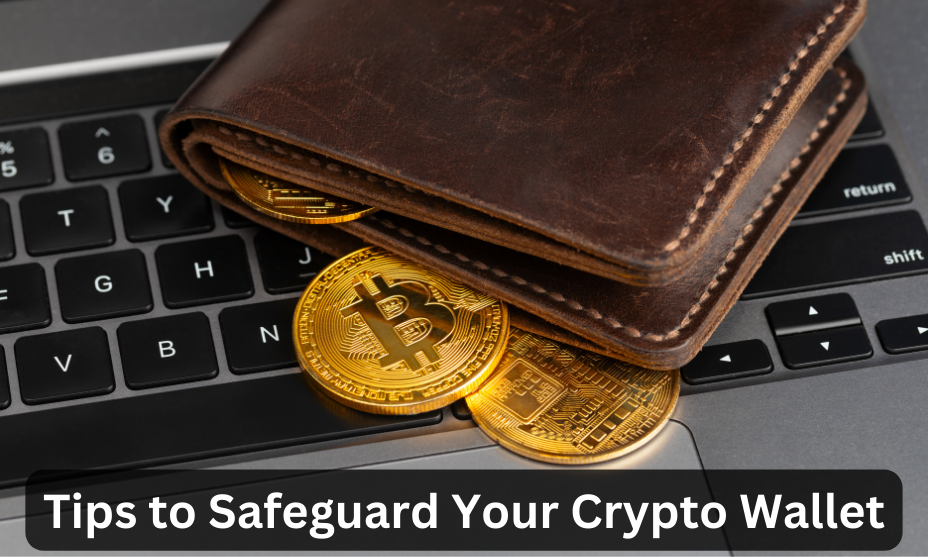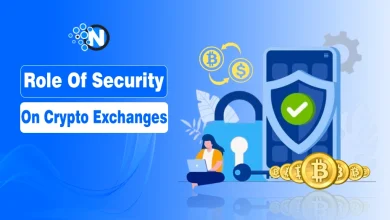Top Tips to Safeguard Your Crypto Wallet
Crypto is in high demand these days, and while this helps the industry flourish, it also poses risks, as your funds could get stolen. Therefore, keeping your crypto safe should be a top priority as an investor. If you don’t know where to start, this guide will walk you through everything you need to know about protecting your assets.
Crypto Security Statistics
Cryptocurrencies are becoming increasingly popular as more people learn how to buy bitcoin online and start their trading journey on renowned exchanges like Binance. This is excellent news for the crypto sector. Well, yes, but at the same time, it poses risks, as cybercriminals take advantage of this aspect. Statistics show that since the beginning of the COVID-19 pandemic, around $3.5 billion worth of crypto has been stolen. This is a significant amount – and it is only estimated to rise as more people join the crypto space.
What is more concerning is that most crypto users don’t implement any security measures, making their accounts susceptible to cyberattacks. This is alarming, considering that bad actors use sophisticated tactics to steal crypto, including phishing attacks, collecting passwords, or stealing the private keys of a crypto wallet, which is the most frequently used method. The statistics highlight that much work needs to be done regarding crypto security. But don’t fret – in what follows, and we will discuss how you can keep your crypto funds safe.
Best Practices to Protect Your Crypto
While it may not be possible to prevent all cyberattacks, there are several things you can do to secure your crypto wallet. Prioritizing crypto security ensures that digital assets are safely stored and no one but the rightful owner can access them. This also helps reduce the risk of fraud and prevent costly data breaches, which can have devastating consequences, such as identity theft. Here are 6 best crypto security practices to consider.
Store Your Crypto in a Cold Wallet
Simply put, a crypto wallet is where you store your funds. There’s a misconception that these wallets hold your crypto physically, just like the wallet in your pocket. However, they currently store private and public keys to purchase crypto and authorize transactions.
There are two types of crypto wallets: hot wallets and cold wallets, and the most important difference between them is that cold wallets are safer. This is because they keep private keys offline, making them less likely to be hacked. A cold storage wallet also eliminates worries about viruses, malware, and other forms of cyberattacks. So, by choosing it, you can rest assured that your crypto is anonymous and safely stored.
Use Robust Passwords
This may sound ridiculous, but the most common password people use is 123456. Cracking such a simple password hardly takes a second; honestly, you can’t blame someone else for it but yourself! You need a complex password to ensure your crypto wallet doesn’t fall into the wrong hands. Don’t worry that you’ll have difficulty remembering them – password managers are now available, and they can do this job for you. Consider the following tips to create a strong password:
- Generate it randomly;
- Combine numbers, letters and special characters;
- Use both lowercase and uppercase;
- Make it longer.
Secure Your Network
Securing your network is among the most important steps to keep your funds safe. Hence, ensure you have solid encryption algorithms and use firewalls and intrusion detection systems. Also, take advantage of 2FA or two-factor authentication.
This method provides extra protection for your accounts, as it requires two identification forms to access data. If someone tries to log in to your account, you’ll get an email or message with a verification code, making it challenging for cybercriminals to access your funds. This is probably evident, but you should never share your 2FA code with anyone, as this could leave you vulnerable to digital threats.
Keep Track of Your Accounts
Monitoring your accounts to identify any suspicious activity is crucial, as this allows you to take action early and prevent potential threats from causing harm. This involves keeping track of passwords, unusual transactions, or account setting changes. Also, you should stay on top of emerging crypto security risks and learn how to react to them. Being cautious and closely watching your accounts will help you keep your funds intact, so don’t overlook this step.
Back up Your Wallet
This is a must-do when it comes to protecting your crypto. Suppose your data is corrupted or lost; having a safe copy ensures you can recover it easily and quickly. Once you create a new key or wallet, you should record your recovery phrase immediately. Self-custody wallet providers don’t maintain seed phrases; if you don’t record your seed phrase and your wallet gets lost, your funds will get lost too.
Fortunately, there are ways to safely store your recovery phrases, such as lock boxes or metal plates. However, you should avoid saving it somewhere connected to the Internet (such as password managers or emails), as this could make it susceptible to cyberattacks.
Avoid Giveaway Scams
You’ve probably heard at least a story of someone falling victim to a scam and losing their hard-earned money. This often happens because people can’t differentiate a genuine crypto giveaway from a fake one. So, if you come across an appealing giveaway online, make sure to check it is genuine before participating in it! You can do so by looking at their social media accounts or website.
Suppose the website is fake or there’s no social media presence; this indicates that the person behind the giveaway wants to scam you and steal your crypto! Remember, if something looks too good to be true, it probably is, and you should avoid it. Don’t make investment decisions based on social media posts; do your research always, and if necessary, talk to experts with great crypto knowledge.
The Bottom Line
Cybersecurity is an ongoing battle, and it can only stop if bad actors give up their job of stealing money – which will probably never happen! Hence, knowing the security risks of investing in crypto and taking the necessary steps to protect your wallet is vital. While this may take work and effort initially, it will ultimately be worth it.





